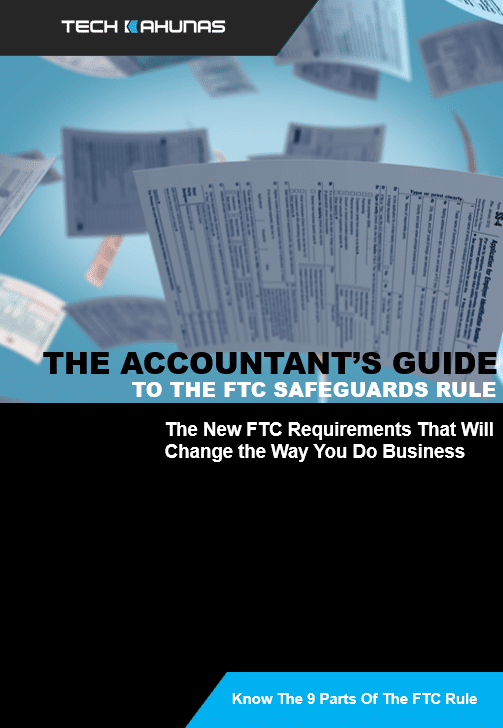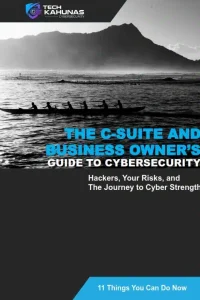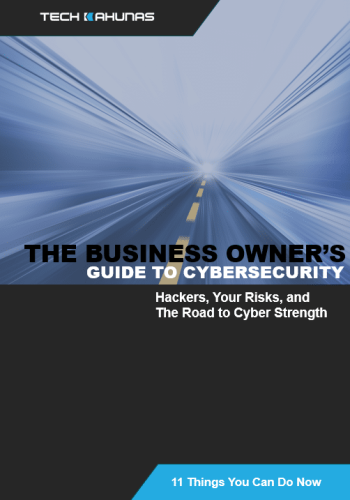Think you’re too small to be targeted by cyberattacks? Some small to medium-sized business owners think so. I have a friend who cannot understand why I am pushing him to upgrade and patch his business operating systems, get business-level malware protection, and safeguard his company (and personal) data. He is certain that he’s just a little guy and not a target.
That’s one of nine myths about cybersecurity that need debunking:
- “I’m Not a Target, so I Don’t Need to Worry”:
- Myth: Some small businesses or individuals believe they are not significant enough targets for cyberattacks.
- Reality: Cybercriminals often target smaller entities precisely because they perceive them as easier targets with potentially valuable data. 43% of cyber attacks hit small businesses (Astra).
- “Anti-malware Software Provides Complete Protection”:
- Myth: Anti-malware software alone is enough to protect against all cyber threats.
- Reality: While anti-malware software is essential, it’s just one layer of defense. You need an IT provider who implements a multi-layered security approach against modern cyber threats.
- “My Password is Strong, so I’m Safe”:
- Myth: Having a strong password means you are immune to hacking.
- Reality: While strong passwords are crucial, they can still be compromised through phishing, brute force attacks, or social engineering. Employee education is a critical part of security.
- “Incognito Mode Makes Me Invisible”:
- Myth: Using incognito mode or private browsing protects your online activities from being tracked.
- Reality: Incognito mode was supposed to prevent your browsing history from being stored locally. Google recently settled a privacy lawsuit for $59 billion that showed the company tracked people using incognito mode (AP News).
Your internet service provider and websites can also still track your activities.
- “Mac Computers Don’t Get Viruses”:
- Myth: Mac computers are immune to viruses and malware.
- Reality: While Macs are less targeted than Windows PCs, they are still vulnerable to malware and cyber threats. A computer is a computer, and threat actors are now targeting your Apple products.
- “Cybersecurity is Only an IT Issue”:
- Myth: Cybersecurity is solely the responsibility of the IT department.
- Reality: Cybersecurity is a shared responsibility across all levels of an organization, from employees to executives. You should also know that your typical IT support person is not your cybersecurity expert.
- “Public Wi-Fi Networks are Safe”:
- Myth: Public Wi-Fi networks are secure for browsing and transmitting sensitive information.
- Reality: Public Wi-Fi networks are often unsecured, making users vulnerable to man-in-the-middle attacks and data interception. In the office, you must also watch for rogue wi-fi access points installed by employees or contractors (insider threats).
- “My Smartphone Can’t Get Hacked”:
- Myth: Mobile devices are immune to hacking and cyber threats.
- Reality: Smartphones are increasingly targeted by cybercriminals through malicious apps, phishing attacks, and device vulnerabilities. Your “bring your own devices” or “choose your own devices” and employee devices should be safeguarded by your IT cybersecurity support.
- “I Have Nothing to Hide, So I’m Not at Risk”:
- Myth: If you have nothing to hide, you don’t need to worry about privacy or cybersecurity.
- Reality: Everyone has sensitive information that can be exploited by cybercriminals, such as financial data, personal details, and login credentials. Imagine hackers emptying or locking you out of your organization’s bank accounts.
Conclusion
These myths need to be debunked. Tech Kahunas raises awareness about cybersecurity risks and promotes proactive measures to protect against cyber threats. You need a cybersecurity partner who will help shield you from these types of weaknesses and vulnerabilities and strengthen and modernize your tech.



 Get your CPA firm aquainted with new FTC rules.
Get your CPA firm aquainted with new FTC rules. 




